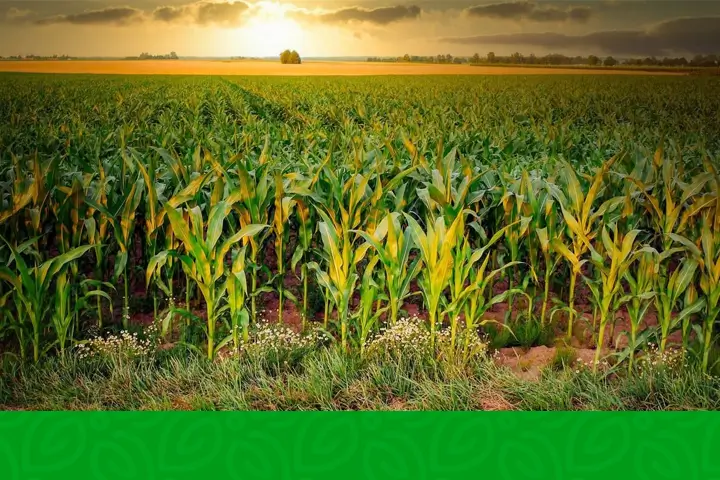
From Bounty to Barrenness: The Stark Impact of Climate Change on Kajiado’s Maize Harvest
In the arid expanse of Kajiado, where the earth’s rhythms dictate life’s flow, a quiet but relentless force has been at play. Climate change, with its insidious effects, has woven a tale of dwindling maize harvests and thwarted agricultural endeavors. As the winds of change sweep through this region, agronomists and experts are sounding the alarm – the once bounteous fields of maize have been diminished to a mere fraction of their former glory.
A Grim Tale of Declining Maize Harvests
Agricultural activity in Kajiado, once vibrant and productive, has been laid low by the somber repercussions of climate change. Josephat Macharia, an agronomist and soil management expert within the county government, delivered this stark revelation. A mere decade ago, farmers reaped a generous harvest of 40 bags of maize per acre. Today, that yield has dwindled to a mere 12 bags, painting a grim picture of the impact of changing climatic conditions.
Macharia’s words resonated in Kajiado town during a county-sponsored training session on climate change and climate-smart agriculture. It was a somber reminder that the forces of nature, when disturbed by human activity and global shifts, can dramatically alter the course of livelihoods.
Nature’s Symphony Disrupted: Causes of Climate Change
Macharia’s explanation painted a complex tapestry of climatic disturbances. He emphasized that climate change is not a singular phenomenon but a symphony of interconnected causes. Changes in the Earth’s orbit around the sun, fluctuations in solar energy output, and shifts in ocean circulation have all converged to disrupt the delicate balance that once governed the region’s weather patterns.
Yet, the hand of humanity is not innocent in this tale. Macharia highlighted the alteration of the atmosphere through human activities over the past two centuries as a pivotal catalyst. Rampant deforestation and indiscriminate sand harvesting in Kajiado have left their scars on the land, altering rainfall patterns and amplifying the impact of drought.
The Battle to Reclaim Kajiado’s Soil and Sky
As the symposium unfolded, voices from the county government echoed a sentiment of concern and urgency. Joy Pello, representing the county government of Kajiado, spoke of environmental protection policies in place. However, she acknowledged a disconcerting dissonance – the persistence of charcoal burning and sand harvesting, activities that stand in stark contrast to the intent of these policies.
In response, George Kimiti, a director in the county’s Department of Environment, unveiled plans for change. A vision to register charcoal burners in cooperatives and provide them with alternative income sources through tree seedling sales is poised to reshape the landscape. Sand harvesters, too, will find a new path as they are integrated into cooperative groups and empowered with motorbikes as sources of sustainable livelihoods.
A Planet Unraveling: The True Face of Climate Change
Beyond Kajiado’s borders, the story of climate change unfolds on a global stage. Joseph Ruto, an agricultural expert in the county, revealed a chilling truth – climate change’s footprint is evident in the altering water cycle, disrupted ecosystems, and the menace of global warming. Greenhouse gases, the silent culprits of this crisis, have pushed the global average temperature higher by about 0.76°C since 1900.
Ruto painted a picture of a world grappling with a shifting water balance, oscillating between droughts and deluges. The delicate equilibrium that once governed nature’s rhythms has been shattered, leading to not only scarcity but also excess in various regions.
The Human Toll: Vulnerability in the Face of Change
In the midst of this upheaval, it’s the most vulnerable who bear the brunt. Speakers at the symposium emphasized the cruel irony that poor populations, often residing in areas susceptible to climate-induced threats, are the ones hit hardest. Deserts, floodplains, and low-lying regions that harbor the world’s poorest are now the epicenters of climate change’s impacts.
A Call to Action: Kajiado’s Battle Against Climate Change
As Kajiado grapples with diminished maize yields and the ominous specter of climate change, the county’s plight serves as a rallying cry. It’s a call to action, a plea for collective responsibility. The alarm has been sounded; the threads of change have already woven a tapestry of disruption.
In the face of adversity, Kajiado must harness its resilience and determination to reclaim its fertile fields and skies. It’s a battle fought not just for this region but for the very fabric of our planet. As we confront climate change’s relentless march, Kajiado stands as a testament to the urgent need for cooperation, adaptation, and a united front against the forces that threaten our shared future.
Stay updated with the latest farming tips and agriculture industry news from Africa by subscribing to our newsletter. Don’t miss out on valuable insights and updates. Follow us on Twitter, LinkedIn, and Facebook to join our farming community and stay connected with us.



















